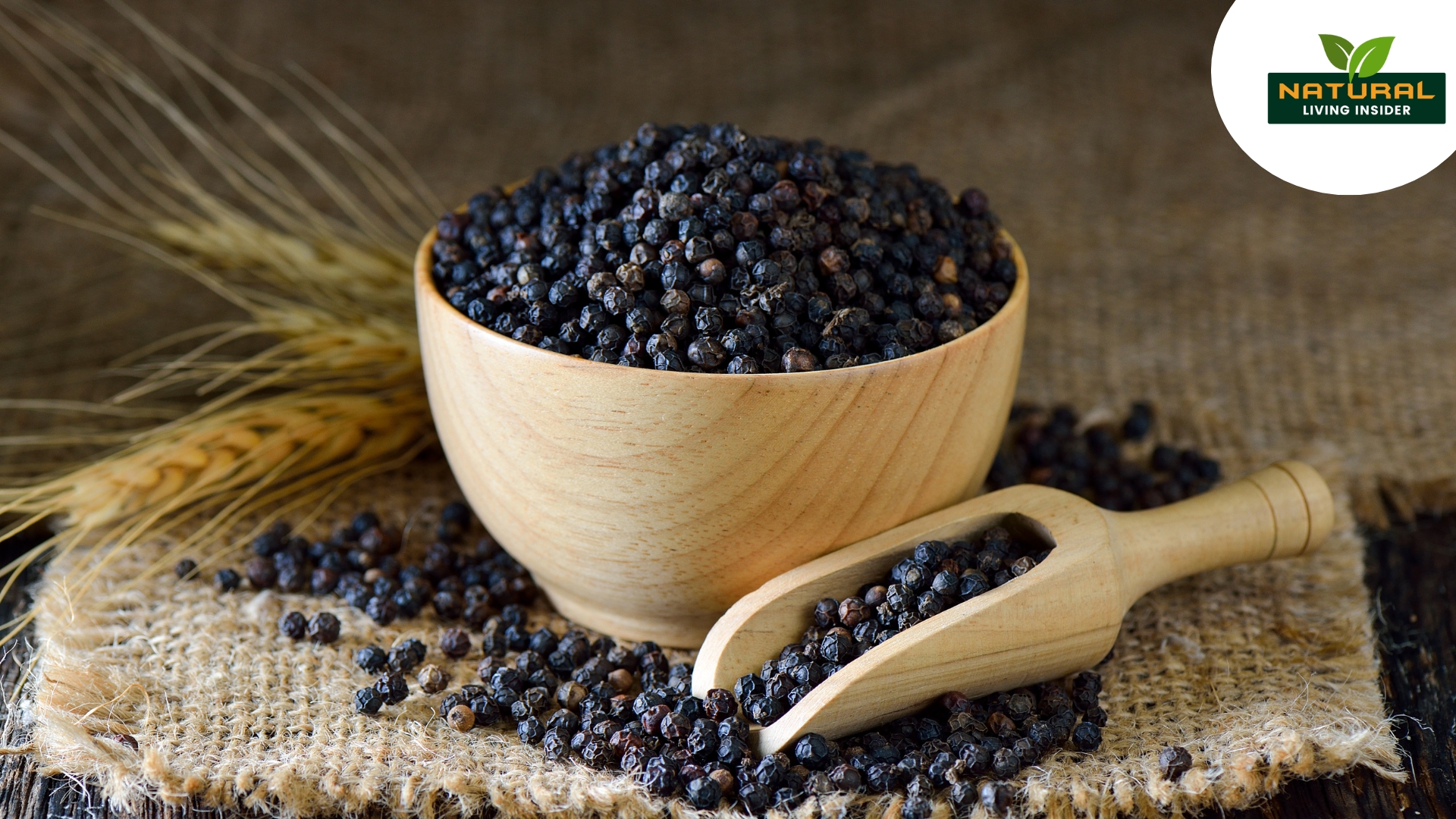
Black pepper, often referred to as the “king of spices,” is one of the most commonly used spices worldwide. Its sharp, mildly spicy flavor enhances a wide range of dishes. But beyond its culinary uses, black pepper is packed with powerful nutrients and offers several health benefits. In this article, we’ll explore the nutritional profile of black pepper and how it contributes to better health.
Table of Contents
Black pepper: Nutrition and health benefits
Black pepper (Piper nigrum) is low in calories but rich in vital nutrients and plant compounds. A teaspoon of ground black pepper contains:
-
Calories: 6
-
Protein: 0.2 grams
-
Carbohydrates: 1.4 grams
-
Dietary Fiber: 0.6 grams
-
Fat: 0.1 grams
It is also a source of:
-
Vitamin K
-
Vitamin C
-
Iron
-
Calcium
-
Manganese (especially high)
-
Potassium
In addition to these, black pepper contains piperine, a powerful bioactive compound that gives pepper its pungent taste and contributes to most of its health benefits.
Top Health Benefits of Black Pepper
1. Improves Digestion
Black pepper stimulates the production of hydrochloric acid in the stomach, which aids digestion. Proper digestion is essential for nutrient absorption and preventing issues like bloating, indigestion, and constipation.
2. Boosts Nutrient Absorption
The piperine in black pepper enhances the bioavailability of several nutrients, especially curcumin (from turmeric), selenium, beta-carotene, and vitamins B and C. This means your body absorbs more nutrients from the food you eat.
3. Rich in Antioxidants
Piperine acts as a strong antioxidant that helps fight free radicals in the body. This can help reduce oxidative stress, which contributes to aging and chronic diseases like cancer and heart disease.
4. Supports Weight Loss
Black pepper may aid in weight management. Piperine can boost metabolism, increase calorie burn, and suppress fat accumulation in the body. It also has a thermogenic effect, which means it helps the body burn more calories through heat production.
5. Has Anti-Inflammatory Properties
Chronic inflammation is a root cause of many diseases. Piperine in black pepper has been shown to reduce inflammation and may be beneficial in conditions like arthritis, asthma, and certain autoimmune diseases.
6. Improves Brain Function
Studies suggest that black pepper may help improve cognitive function and protect against neurodegenerative diseases such as Alzheimer’s and Parkinson’s. Piperine enhances memory and learning by boosting the neurotransmitters in the brain.
7. Regulates Blood Sugar Levels
Black pepper may help manage blood sugar by improving insulin sensitivity. This makes it a supportive dietary addition for people with diabetes or those at risk.
8. Enhances Respiratory Health
Traditionally, black pepper has been used to treat colds, coughs, and asthma. It helps break up mucus and clears nasal congestion. Its antimicrobial properties also help fight respiratory infections.
9. Promotes Gut Health
Black pepper supports gut health by stimulating the production of digestive enzymes and acting as a prebiotic, encouraging the growth of healthy gut bacteria.
10. May Have Anti-Cancer Properties
Early research indicates that piperine may help reduce the growth of cancer cells and prevent the spread of tumors, particularly in breast, colon, and prostate cancers. However, more human studies are needed.
How to Use Black Pepper for Maximum Benefits
-
Add it fresh: Grind whole black peppercorns fresh onto your meals to preserve its beneficial oils.
-
Combine with turmeric: Piperine enhances the absorption of curcumin, making the combination highly potent.
-
Use in teas: A pinch of black pepper in herbal teas, especially with ginger and honey, can soothe the throat and boost immunity.
-
Sprinkle on salads, soups, and eggs for a healthy and flavorful kick.
Precautions and Side Effects
While black pepper is generally safe for most people in normal food quantities, excessive consumption may cause:
-
Gastrointestinal discomfort
-
Burning sensation in the stomach
-
Allergic reactions in rare cases
It may also interact with certain medications, especially blood thinners and antiplatelet drugs. Always consult your doctor if you're on medication and planning to use black pepper in large amounts or as a supplement.
Black pepper is much more than a spice to season your food — it’s a nutritional powerhouse with a long list of health benefits. From aiding digestion and boosting metabolism to protecting brain and heart health, it plays a valuable role in overall well-being. So the next time you twist that pepper mill, know that you’re doing more for your body than just adding flavor!


